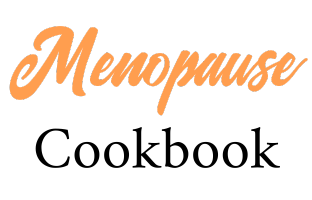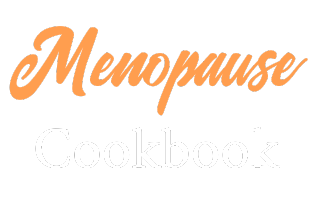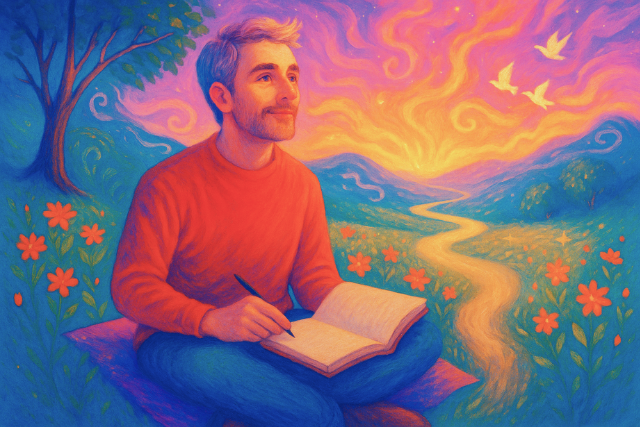“You can plan for a hundred years. But you don’t know what will happen the next moment.” ~Tibetan proverb
Some days it feels like a fog I can’t shake—this underlying fear that something painful or uncertain is just around the corner.
I try to be responsible. I try to prepare, make good choices, take care of things now so the future won’t unravel later. But beneath that effort is something harder to face: I feel helpless. I can’t control what’s coming, and that terrifies me.
Maybe you’ve felt this too—that tension between doing your best and still fearing it’s not enough. Worry becomes a habit, like you’re rehearsing bad outcomes in your head just in case they happen.
That’s where I found myself when I turned to Buddhist teachings—not for comfort exactly, but for a different relationship with uncertainty.
What Buddhism Taught Me About the Future
One of the first things I learned is that Buddhism doesn’t tell us to stop caring about the future. It teaches us to stop living in it.
The Buddha spoke of suffering as arising from two core causes: craving (wanting things to go a certain way) and aversion (pushing away what we don’t want). When I spin into worry or try to predict everything, I’m doing both—I’m grasping for control and resisting what I fear.
But the future is always uncertain. That’s the part I don’t want to admit. I used to believe that if I thought hard enough, planned carefully enough, I could outmaneuver risk. But I’ve learned that worry isn’t preparation—it’s just suffering in advance. It doesn’t protect me. It only pulls me out of the life I’m actually living.
The Real Conflict: Planning vs. Presence
Here’s the real tension I struggle with—and maybe you do too: I believe in the power of presence. But I also know I have to plan.
As a filmmaker, planning isn’t optional. Without preparation, things fall apart. A well-structured plan doesn’t just prevent chaos—it makes room for creativity. It allows me to focus, explore, and respond to the moment without losing direction. In that way, planning is part of my art.
So when I first encountered teachings about letting go and trusting the moment, it felt contradictory. How could I live in the now when my work, and life, require thinking ahead?
This was the real conflict—the push and pull between control and surrender, between structure and flow. One is necessary for functioning in the world. The other is necessary for actually feeling alive in it.
A Real-Life Lesson in Letting Go
Years ago, I received grants to make a 16mm documentary about Emanuel Wood, a traditional Ozarks fiddler with a rich musical heritage and a colorful presence. I had high-quality gear lined up—Nagra 4.2 audio, film stock, the works—and the project felt blessed. Emanuel was eager. I was hopeful. The plan was solid.
It felt like everything was finally coming together.
But over the years I’ve learned something the hard way: sometimes, when I feel euphoric about a plan, it’s also a signal—a subtle warning that life might have something else in mind.
Sure enough, Emanuel died unexpectedly just a few months before I was scheduled to begin filming. Just like that, the film I had meticulously envisioned, built support for, and shaped my year around was gone.
I was devastated. I couldn’t give the grant money back, and I didn’t want to abandon the deeper spirit of the project. So I did what I didn’t expect to do: I stayed present, and I listened.
I made a different film. A new one. Something just as honest and grounded in the world Emanuel represented. It was shaped by the same love of music, the same longing to preserve meaning, and it emerged only because I stayed with the discomfort and uncertainty of not knowing what to do next.
Planning had given me the structure. But presence—and trust—allowed the story to live on in a different form.
The Middle Path: Flexible Readiness
I think about that lesson often. The same conflict plays out across many fields. The military trains obsessively for what can’t be predicted. A jazz musician rehearses scales for hours, only to let them go once the song begins.
We don’t have to abandon planning. We just have to make space for improvisation.
This is how I’ve come to understand the Buddhist path in a practical world: Planning is necessary. But clinging is optional.
Now, I try to plan the way a musician tunes their instrument. Prepare with care. Show up with intention. But when the moment comes, play—not from control, but from connection.
What Helps Me Now
These days, when fear about the future rises, I pause. I breathe. I ask myself: Am I trying to control something I can’t? Can I still act responsibly without gripping so tightly? Can I trust this moment, even briefly?
I still make plans. I still take responsibility. But I no longer pretend I can outthink uncertainty. I try to meet it with curiosity, flexibility, and a little kindness toward myself.
Sometimes I quietly repeat:
May I be safe. May I meet whatever comes with courage and care. May I trust this moment.
That doesn’t solve everything. But it brings me back to the only place I actually have any power: here.
You don’t have to give up planning. Just stop making it your emotional insurance policy.
You can build the structure, take the next right step, and still leave space for life to surprise you.
Let your plans serve your life—not replace it.
About Tony Collins
Tony Collins is a documentary filmmaker, educator, and writer whose work explores creativity, caregiving, and personal growth. He is the author of: Windows to the Sea—a moving collection of essays on love, loss, and presence. Creative Scholarship—a guide for educators and artists rethinking how creative work is valued. Tony writes to reflect on what matters—and to help others feel less alone.



